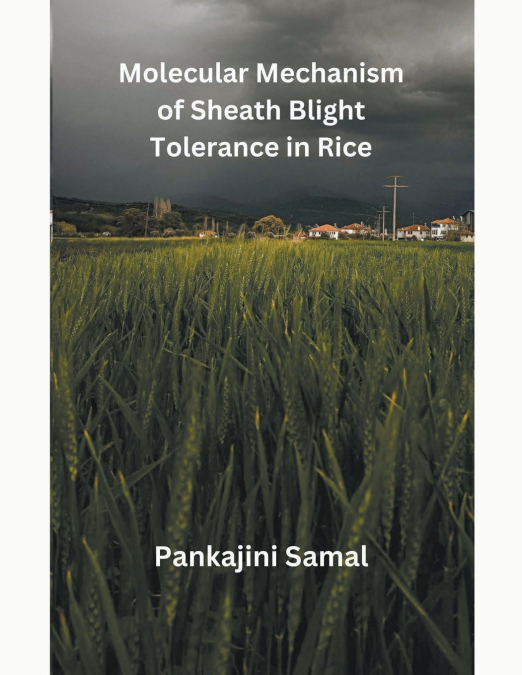
Pankajini Samal
Rice being the most important cereal of not only in India but in most of the Asian and African countries and also the most important cereal second to wheat only. In India the average productivity of rice is approximately 3.4 t/h which is much below than its highest productivity. The major constraints of rice production are different stresses which include both biotic and abiotic stresses. Out of the biotic factors different diseases caused by fungi, bacteria and viruses are major. The rice suffers from different fungal diseases like blast, sheath blight, brown spot, sheath rot, false smut, seedling blight, bakanae etc. Sheath blight (ShB) of rice has emerged as a serious threat for rice cultivation for the Indian subcontinent. The introduction of semi dwarf high yielding varieties of rice has brought evolution in rice production in India but also it has invited several problems along with it like some minor diseases have emerged as a major one. The sheath blight (ShB), caused by Rhizoctonia solani (Kuhn) (perfect stage Thanatephorus cucumeris), which was once a minor disease has turned to be a serious threat to rice cultivation in mainly tropical countries. The estimated yield loss due to this disease is 5.2 to 50 percent depending upon the environmental conditions. The disease was first identified in Japan and subsequently spread to various parts of the world. The major problem of the disease is that the causal organism is polyphagous in nature and formation of new anastomosis group in nature leading to new virulent strains. There are many reasons behind the difficulties in controlling this disease including wide host range of the pathogen and its capability to survive for longer period of time as thick walled sclerotia in the soil as well as its high genetic variability. The pathogen can be effectively controlled by fungicide only which shows negative impact on environment.